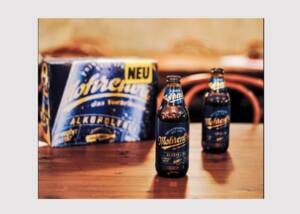Already saving CO2 today? Eckes-Granini saves 50,000 truck kilometers per year
News General news
-Eckes-Granini shifts transports from road to rail
-New liquefied gas-powered trucks for logistics fleet
-36% logistics-related CO2 emissions saved since 2012
-All three sites in Germany climate-neutral since 2019

Sustainability is one of the main pillars of Eckes-Granini and is deeply rooted in the corporate strategy. Systematic corporate environmental protection became a declared goal as early as the early 1990s. Since 2019, Eckes-Granini has been operating on a climate-neutral basis at all three of its sites in Germany. This success was achieved through the implementation of numerous measures in the area of climate protection. A key component of this is the reduction of CO2 emissions in the logistics fleet. Eckes-Granini has already saved 4,838 metric tons of CO2 and thus 36% of its logistics-related greenhouse gas emissions since 2012. Dr.Kay Fischer, Managing Director of Eckes-Granini Deutschland GmbH: "As a family-owned company, we are particularly committed to using our resources and the environment responsibly. By making our logistics more ecologically efficient, we are making an important contribution to climate protection."
From road to rail: over 50,000 truck kilometers less.
"We bring people the best from fruit" - that is Eckes-Granini's claim. However, it is a long way to the finished juice on the supermarket shelf, a journey that generates CO2 emissions. Eckes-Granini is continuously working on new solutions and ideas to further reduce its carbon footprint. "We have been working for some time on shifting a portion of our domestic truck shipments to rail. However, this is a major challenge when it comes to sensitive goods such as foodstuffs," says Eckes-Granini Germany Logistics Manager Steffen Riedel.
In cooperation with DB Cargo, Eckes-Granini has now found a solution and shifted part of its domestic transports by combined transport to rail. The juice bottles are transported by truck in special 45-foot containers from the production sites in Bröl/Hennef and Bad Fallingbostel to the Cologne Eifeltor and Hamburg Billwerder terminals. There, they are loaded precisely into rail cars and then transported by freight train to the destination station. The onward leg is then carried out by truck again. "To further reduce our CO2 emissions, we rely on rail wherever possible due to delivery times and infrastructure. With the transfer, we can save more than 50,000 truck kilometers on the road per year in Germany for long-distance connections and thus up to 40% of greenhouse gas emissions," says Riedel. And Eckes-Granini regularly reviews other options for shifting shipments - especially customer deliveries - from road to rail.
Integration of liquefied natural gas (LNG) trucks into the logistics fleet
Nevertheless, road transport by truck is not completely out of the question, especially for the first and last few kilometers. Eckes-Granini has therefore decided to integrate the first LNG (liquefied natural gas) trucks into its logistics fleet. Logistics Manager Riedel: "The use of gas as a fuel makes a significant contribution to further reducing CO2 emissions. Here we expect additional savings of around 20% in CO2 emissions and around 60% in nitrogen oxides. Noise emissions are also significantly lower with LNG trucks compared to "normal" diesel trucks." In order to further reduce CO2 emissions in its logistics fleet, Eckes-Granini will continue to work on gradually optimizing all transport routes along the value chain in the future.










